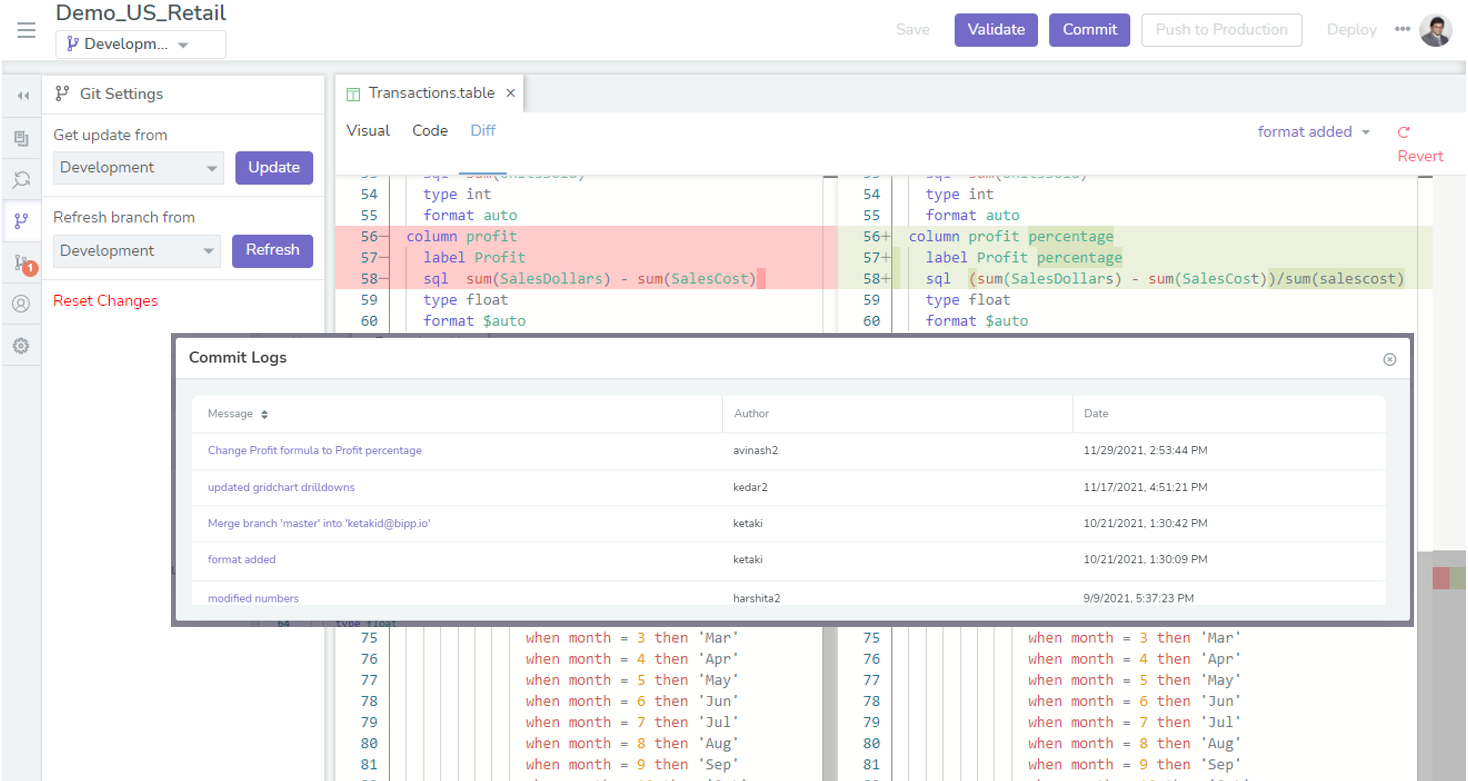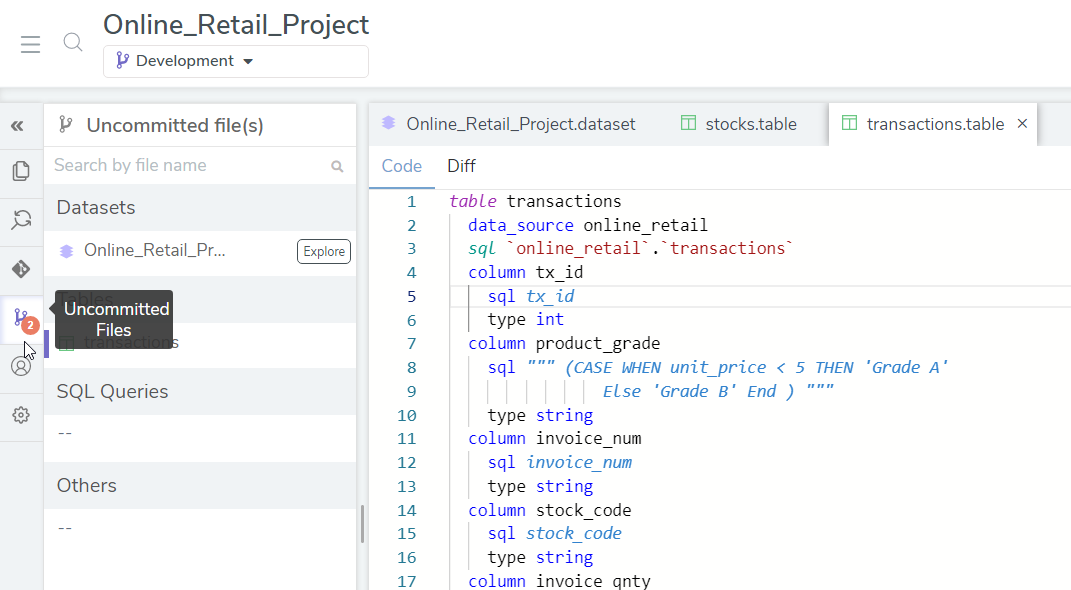Git-Based Version Control Turns Your Data Models Into Living Entities
Back-up, file management and collaboration baked into bipp at no cost
bipp incorporates modern version control features through Git to record changes and manage file versions. Each bipp project connects to a Git repository, and each developer branch correlates to a Git branch (which encapsulates changes)
This means all data models and SQL queries for your projects are automatically backed up. Instead of working in a separate editor and saving versions locally, bipp projects integrate with Git to provide source control features such as
- multiple branches
- save/commiting code to its own branch
- automatically merging changes from the browser, and
- push/pull from the master
This turns your data models and SQL queries into living entities so you can always access the latest version. You can also record changes to a file or set of files over time so that you can recall specific versions later.
This makes it a good choice for enterprise teams working together on an analytics project, allowing you to share queries and collaborate with other team members.
Git-based version control saves time as data analysts can reuse code, review history, and make edits to files for SQL queries.Tracking changes and collaborative data model development also increases productivity and significantly reduces time to generate reports.

bipp incorporates modern version control features through Git to record changes and manage file versions. Each bipp project connects to a Git repository, and each developer branch correlates to a Git branch (which encapsulates changes)

This means all data models and SQL queries for your projects are automatically backed up. Instead of working in a separate editor and saving versions locally, bipp projects integrate with Git to provide source control features such as
- multiple branches
- save/commiting code to its own branch
- automatically merging changes from the browser, and
- push/pull from the master
This turns your data models and SQL queries into living entities so you can always access the latest version. You can also record changes to a file or set of files over time so that you can recall specific versions later.
This makes it a good choice for enterprise teams working together on an analytics project, allowing you to share queries and collaborate with other team members.
Git-based version control saves time as data analysts can reuse code, review history, and make edits to files for SQL queries.Tracking changes and collaborative data model development also increases productivity and significantly reduces time to generate reports.
Get (Git?) Control with Git-Based Version Control

bipp’s Git-based version control brings developer best-practice to BI. Want to learn more?


